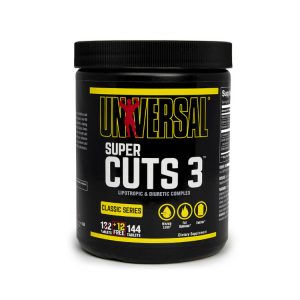Stimulants & Performance
New recent studies show that the regular consumption of stimulants, such as the caffeine commonly found in coffee, tea, and pre-workout supplements, can actually reduce training performance and negate the positive effects of pre-/intra-workout caffeine supplementation.
About Caffeine
As you probably know, caffeine is the wonder drug that has been used as an ergogenic aid for decades. It’s regularly consumed by just about everyone, not just athletes. Caffeine is valued for its ability to stimulate the nervous system, and thereby increase alertness, delay fatigue, increase endurance, decrease the perception of exertion, and increase the contractile force of muscles, which in turn results in increased muscular strength.
Commonly consumed caffeinated beverages and supplements
• Tea • Coffee
• Energy drinks
• Pre-workout supplements
• Fat burners
What caffeine does to your body
• Caffeine increases the movement of fatty acids to the blood stream where it can be used as energy and thus delays the depletion of muscle glycogen.
• Caffeine acts as a mild diuretic, ridding your body of extra salt and water by increasing urine production.
• Caffeine can increase your stomach acid, which can inadvertently lead to an upset stomach or heartburn in some.
• Caffeine can increases blood pressure.
Negative effects of caffeine if over consumed
• Restlessness and shakiness
• Insomnia
• Headaches
• Rapid or abnormal heart rhythm
• Dehydration
• Anxiety
• Dependency (need more to get same initial effect)
What Does the Science Say?
Let’s take a deeper look at one of the studies:
1. Researchers found that subjects who consumed the equivalent of around three or more cups of coffee every day saw their athletic performance decline with repeated sprint tests, even after intra-workout caffeine supplementation.
2. Researchers also found that athletes who consumed moderate to high amounts of caffeine during the day did not see any increased performance when supplementing caffeine during or around their workout.
3. Researchers concluded that by abstaining from the regular use of caffeinated drinks and supplements throughout the day, the athlete could yield a greater increase in performance when caffeine was only consumed around the time of training.
How Much is Too Much?
The IOC (International Olympic Committee) has imposed limits on caffeine consumption which has varied over the years to 1000mg (6-8cups of coffee) consumed within 1-2 hours. This seems like a lot because you will not find any products on the market with that much caffeine per serving. You would have to probably work up to that amount over an extended period of time. It must be noted that metabolism of caffeine varies greatly from person to person based on gender, weight, and of course genetics.
What is the Proper Dose?
Since everyone responds differently to the effects of caffeine, I recommend that you start with a small amount—around 100mg—at least 30-60 minutes prior to training in order to assess your individual tolerance. From there, you can increase the dose until you reach the desired effect. Again, do not consume caffeine to the point where you are over-stimulated and your heart is pounding or you experience high levels of anxiety. At that point all performance enhancing effects of caffeine diminish.
What’s the Proper Timing?
Because the onset of caffeine is 30-60 minutes and the half-life of caffeine is about 3-7 hours on average, consume pre-workout or caffeinated beverages 30-60 minutes prior to any exercise or event. In some cases, it might be a good idea to consume it 2 hours before to allow the body to adjust to the stimulatory effect. The feeling of anxiety and jitters can have a negative impact on performance and fine motor movements in some people. Also, given its large half-life, extending up to 7 hours in some people, avoid caffeine intake in the evening hours so it will not affect sleep, which is essential for recovery.
For Competitors
All too often I see competitors overly relying on the use of stimulants during preparation for a contest. It’s understandable—preparing for a contest is grueling, and the body comes under extraordinary levels of fatigue. I’ve seen clients drink coffee all morning, take two scoops of pre-workout before they train, then have two energy drinks with lunch, another coffee in the afternoon, and another at dinner. Then they wonder why they have a hard time sleeping! In many cases, they were putting their bodies into a vicious cycle where they would use caffeine to fight fatigue, but in doing so, they would actually fatigue their bodies even further by negatively impacting the vital period of rest.
How to Ween Off
If you think you are relying too heavily on caffeine, here are some tricks you can try:
1. Substitute one of your cups of coffee with green tea. The average cup of coffee has 125-185mg of caffeine, whereas a cup of green tea has roughly 55mg of caffeine. If you have four cups of coffee per day, try making two of those coffees a green tea instead, especially the one toward the later half of the day.
2. Change your pre-workout supplementation. If you are using more than the recommended amount of pre-workout powder to get the desired stimulatory effect, chances are you need to adjust. You can do this by cutting the amount you take in half or stopping the supplement completely. You can also try switching to a cup of coffee and a non-stimulant pump supplement instead. One of my favorite things to do is drink a cup of black coffee with Animal Pump about 30 minutes before my workout.
3. Try decaf. This is a trick for all you coffee lovers. If you drink 2-4 cups of coffee per day, try substituting a few of them with decaf.
4. Keep track. If you keep track of your food and your workouts, why not keep track of how much caffeine you are consuming? You may be surprised at the amount you’re taking per day.

